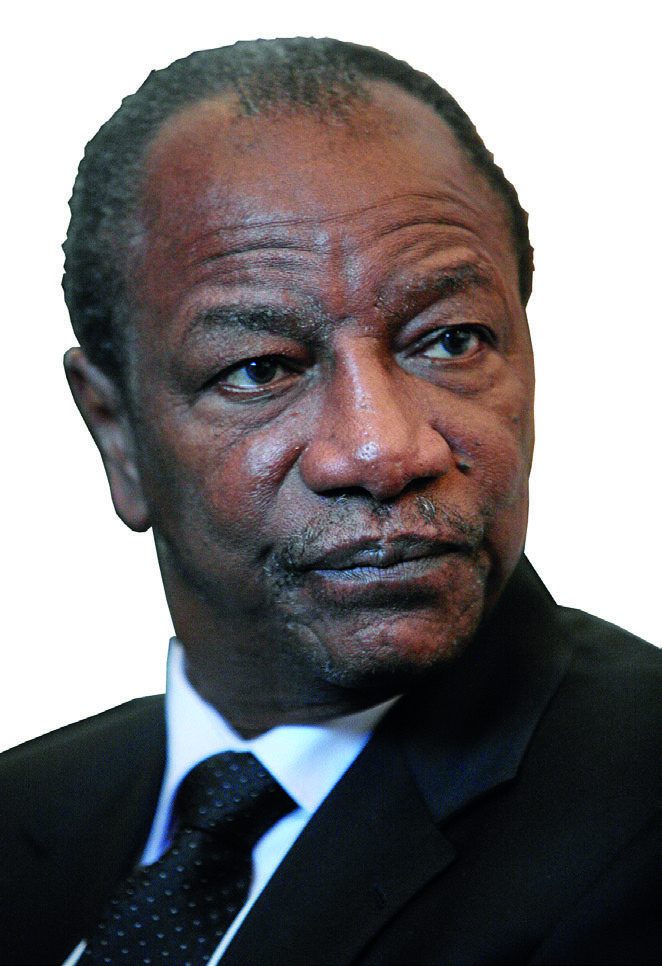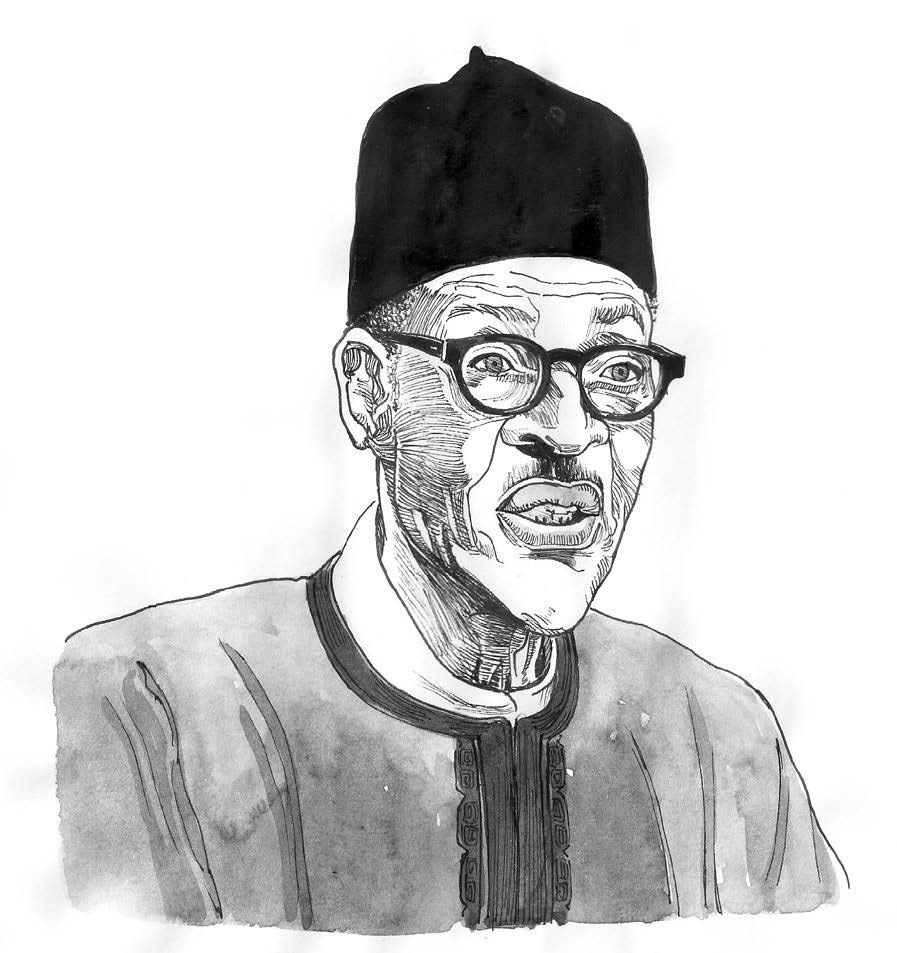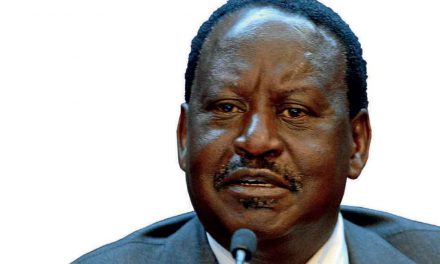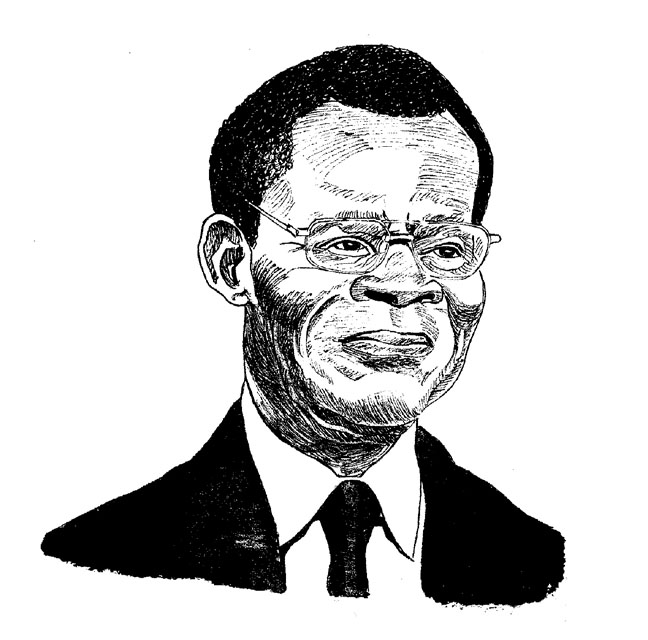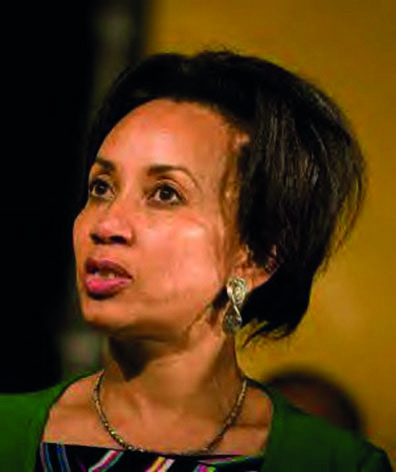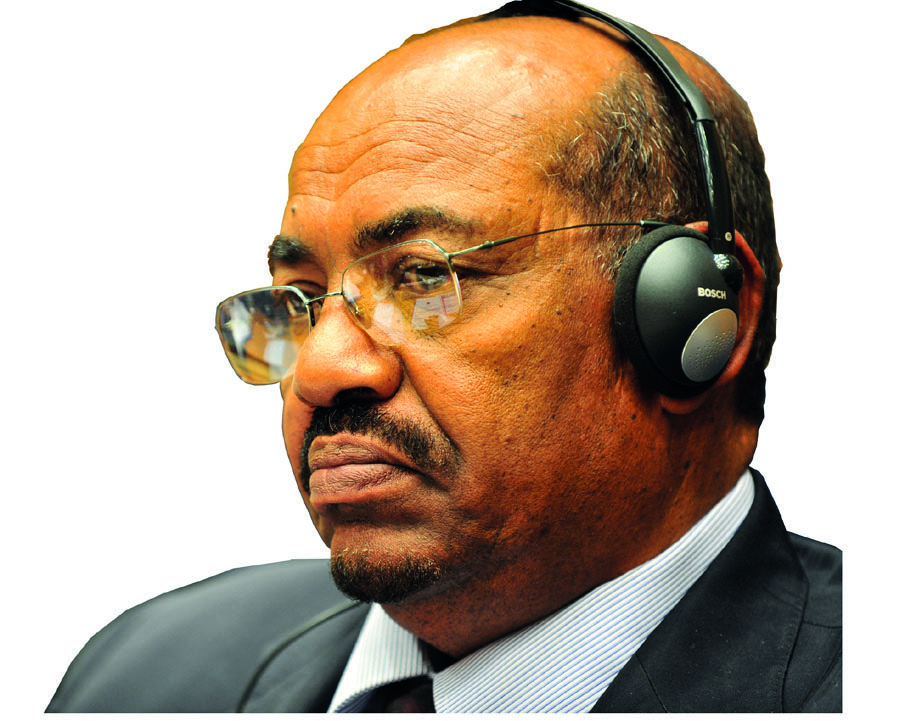
Omar al-Bashir, the president of Sudan. Image Jesse B. Awalt
Despite its increasingly youthful population, poor succession planning means Africa continues to be governed by aged and ageing tyrants
While Africa tries to move forward, it remains largely stuck in its past. That past is embodied in the many old leaders who still rule at least a quarter of the continent, but hold back progress with their outdated economic policies and unaccountable leadership.
At meetings of that bastion of African leadership, the African Union (AU), old-time dictators – some expediently reshaped as democrats – sit side by side with youthful presidents and plodding reformers. The chairmanship of the institution seems mainly to rotate among the old men. The current chair, Guinea’s Alpha Condé (79), was handed the baton by ageing autocrat, Chad president Idriss Déby (67), who in turn received it from Zimbabwe’s Robert Mugabe (93), who aims to mark 38 years in power with a new term in 2018.
Other names from African history still lingering in the corridors of power include Teodoro Obiang Nguema Mbasango (74) of Equatorial Guinea, Denis Sassou Nguesso (73) of the Republic of Congo, Paul Biya (84) of Cameroon, José Eduardo dos Santos (74) of Angola and Omar al-Bashir (73) of Sudan.
Some of their historical peers only left office only because they died there. Meanwhile, more than 50% of the population in many African countries is below the age of 30. Most were not born when these leaders began their rule.
Currently there is much talk of a rising, modernising and technologically reforming Africa, suggesting the continent is moving away from its chequered history. But the past lingers in the prevalence of unaccountable and repressive governance and abandoned, mostly poor, electorates, while the continent still faces the challenges of poverty, disease and underdevelopment.
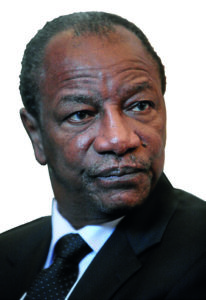
Alpha Conde, President of Guinea. Image World Economic Forum/Remy Steinegger
When former Chadian dictator Hissen Habré died in 2016, the world was reminded of a rule characterised by massive human rights abuses. Under Habré, “government” involved a flagrant abuse of basic standards of governance, and more than 40,000 people died in a long reign of terror. That seemed to be a long time ago – but his successor, Déby, who grabbed power in 1990, is the immediate past president of the AU.
The Republic of Congo’s Sassou Nguesso overthrew his predecessor, Pascal Lissouba, in 1997 in the middle of a violent civil war. He presides over one of Africa’s poorest nations, but he was voted back into power in 2016 for a second term. This extends a run in power that began in 1979, interrupted only by a five- year period after he lost an election in 1992. In Uganda, meanwhile, President Yoweri Museveni, who entrenched two-term limits in the constitution in 1995 before recently engineering an adroit U-turn, won his fifth term in 2016 after 30 years in power. During nearly four decades in power, Zimbabwe’s Mugabe as presided over the disastrous economic decline of his country. He plans to stand for re-election next year, though he is barely able to walk. Mugabe epitomises a common failing in African leadership – the lack of succession planning, which appear to be based on a belief that no one could take their place.
Zimbabwe’s divisive succession battles have continued for years, with Mugabe’s wife Grace leading one of the two main factions vying for power.
Many ageing leaders remain steeped in the failed policies of the 1980s that brought economic woe to many a newly independent country. Strong state control over the economy and stifling regulation are legacies of this era, as are abiding poverty and underdevelopment and aid that has propped up many a dysfunctional government.
This is not exclusive to these old-time rulers, but they have set a precedent that allows newer leaders to behave similarly without reproach. Aspirant “Big Men” such as South Africa’s Jacob Zuma and Joseph Kabila in the Democratic Republic of Congo show all the signs of having learned from the old autocrats.
Why has Africa failed to realise its potential, or anything like it, in the half a century since independence? In his book Why Africa is Poor, Dr Greg Mills concludes, controversially, that Africans are poor because their leaders made this choice; that they chose policies that have perpetuated poverty and underdevelopment because of vested interests and political expedience.
And they have been allowed to do so by the international community, which has thrown aid at governments, thereby allowing them to abrogate their responsibility and accountability to their voters. Moreover, there has been little grassroots pressure for change, says Mills.
“Economic growth does not demand a secret formula,”he says. Other countries have worked around an uneven global system to succeed, but African leaders continue to lament the past rather than designing the future. Africa’s rulers have consistently blamed external factors for their countries’ lack of development.
Nigerian academic Sam Adeyemi says the continent’s problem is due to quality of the leadership culture that has developed in Africa, rather than any specific leaders. “We’ve had different leaders with the same results for decades. The power distance that exists between leaders in government and citizens is also reflected in organisations and families.
In such a structure, leaders don’t serve; they are served, because occupying leadership positions makes them superior and unaccountable to the people they lead,” he wrote in an article published by the World Economic Forum. African politics has become entirely centred on capturing and maintaining political power.
He maintains that under such leaders, African citizens have not been educated as independent thinkers; instead, they have developed a learned state of helplessness, believing that they are powerless to change their circumstances.
“The culture is permission-seeking. Unfortunately, the ruling class is not interested in granting permission for the mass of the people to be admitted into its cadre.” Piers Pigou, a consultant for the International Crisis Group in Southern Africa, concurs, saying a shift in the continent’s political “ecosystem” is needed. “Comparative experience-sharing and the role of media is critical. A much more textured understanding of political economies is critical. There is a very thin veneer of insight and understanding. This suits those who benefit from the retention of the status quo and helps to reinforce dependencies and associated fears and vulnerabilities,” he told Africa in Fact.
“Political leadership in the (African) post-colonial state … has been unable, and in many instances unwilling, to drive policies and interventions that deepen inclusive and pluralistic notions of democracy. This is compounded by weak institutional capacity, perfunctory public participation and a veneer of electoral democracy that can either mask or starkly reflect the realities of dependency and patronage,” Pigou said. African politics has become entirely centred on capturing and retaining political power, which is seen as central to economic survival and opportunity, he concludes.
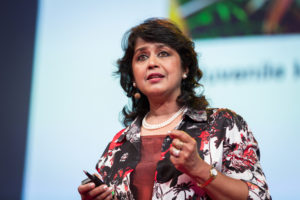
Mauritian president Ameenah Gurib-Fakim Photo: James Duncan Davidson/TED
Two emerging trends provide some reason for optimism. One is the fact that new leaders with more modern ideas are starting to come through the ranks, although, arguably, their power in the AU is limited.
One is Rwanda’s Paul Kagame (59) who, despite being regarded as an old- style autocrat politically, has recognised that broad-based growth is key to his success and has driven development from the front in areas such as energy, agriculture, regional trade and ICT. Botswana’s Ian Khama (64) is another. He has been a solid leader but also an unflinching critic of poor governance, particularly in his neighbour, Zimbabwe, and the African Union’s weaknesses.
Others include Tanzania’s John Magufuli (57), who has led by example in ridding his country of wasteful expenditure, and Mauritian president Ameenah Gurib-Fakim (57) with a doctorate in chemistry, who is pushing for a greater focus on science and the environment in Africa.The other is technology, which provides access to information and provides citizens with a platform for dissent and criticism of leaders that can influence elections and performance.
Social media has played a significant role in recent elections in Africa. In Nigeria, the hashtag #Nigeriadecides became a tool for campaigning, sharing frustrations and communicating results, playing a role in making the poll the most transparent in Nigeria’s history. In Senegal in 2015, protests on twitter against the government over serious water shortages in Dakar finally got the government to act. In South Africa, rallying cries over social media led to several large marches against President Jacob Zuma.
Technology has also enabled citizens to empower themselves by providing new avenues for job creation and start ups, access to information and education and to improve the efficiency of their lives by enabling anything from mobile banking in rural areas to buying solar power and accessing medical advice via the internet, bypassing inefficient, old-fashioned governments. However, there have also been downsides: technology has also been used as a tool for governments to spread fake information and for terror groups to recruit members.
Agenda 2063, the AU’s 50-year programme for the continent’s development, has the tagline, “The Africa We Want”. It highlights the fact that if Africa continues to do business as usual, the future of Africans will not improve and most countries will stagnate, resulting in further marginalisation from the global community. Its raft of priorities includes everything from democracy, security and ethnic issues to capital markets and a strategy for commodities to creating a single African airspace.
The intentions are noble but require the political will that has failed in the past to deliver on former equally noble goals and targets. Without new, visionary leadership, will these emerging factors be enough to displace the negative legacies of the past and turn the continental ship in a direction that might achieve the AU’s long-term goals? Or will a youthful revolution finally dispose of these ageing leaders before age or illness does?
An understanding of history is important in evolving nations – it provides a benchmark for things we want and don’t want. Unfortunately, many leaders who should, by now, be part of history are still charting the future.

